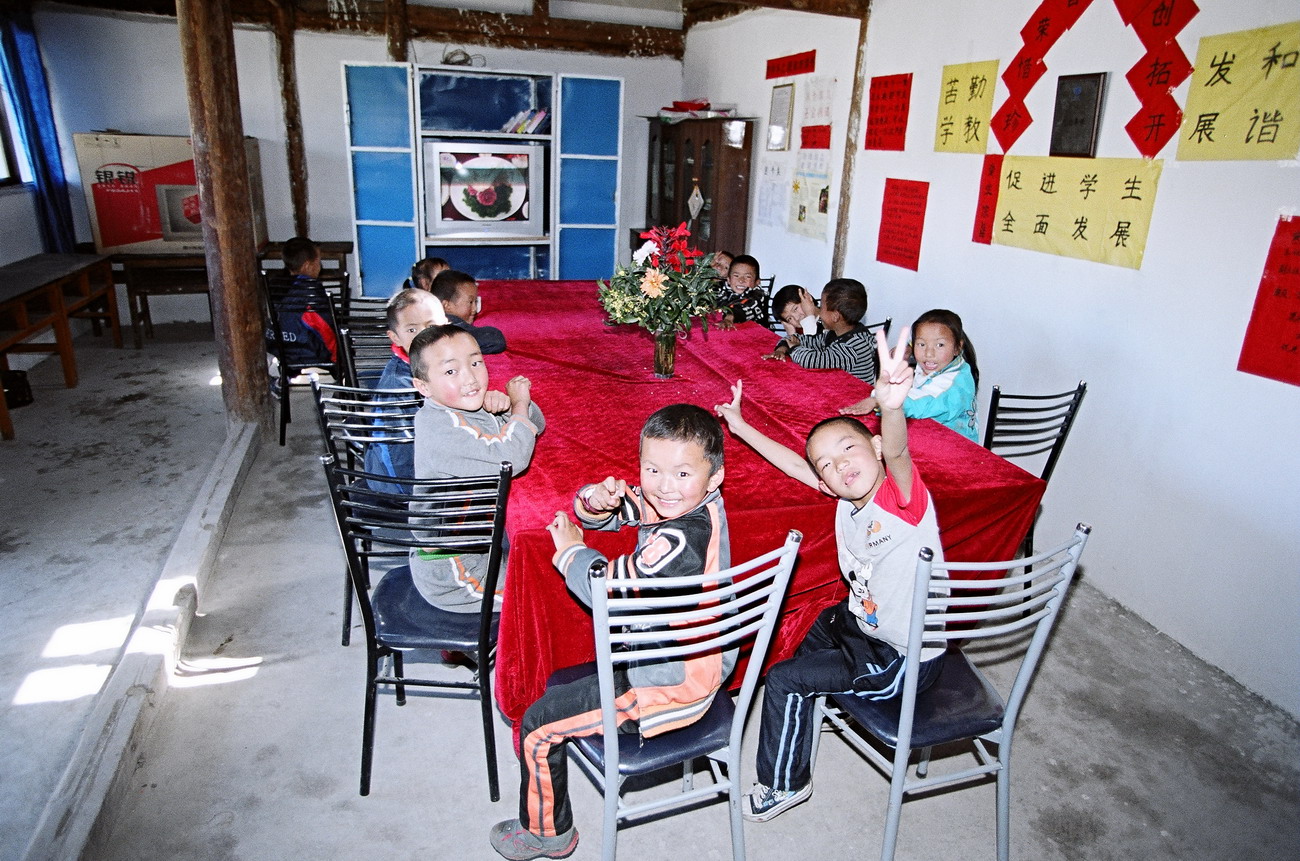|
Through the UNICEF-supported Child Immunization Registry and Information System, local health workers are able to trace the vaccination history of migrant children in project districts. Migrant children in project areas are registered with the local Migration Administration Office, and their information entitling them to receive free vaccinations is shared with local health authorities.
For left-behind children living with their grandparents or extended family members, UNICEF is working in cooperation with government partners to pilot Child Friendly Spaces that provide children with psychosocial support and caregivers with child care information, Ms. Mellsop said.
"After the 2008 Wenchuan earthquake, UNICEF introduced its international expertise for supporting disaster-affected children by developing 'Child Friendly Spaces' where children experiencing psychosocial stress could receive the special care and support they needed," Ms. Mellsop told China Today. Over time, these Child Friendly Spaces have developed into a widely recognized model of special services for vulnerable children with special needs, including those affected by migration. Today, the Child Friendly Spaces concept has been integrated into China's National Plan of Action for Children.
Investments with High Returns
Early childhood development is another focus of UNICEF China. "International research shows that one dollar invested in early childhood development brings a return of at least seven dollars. It is hence the best investment a government can make," Ms. Mellsop said. "Children that have quality childhood education do better at school and are more productive when they join the workforce," she added.
Chinese authorities have recognized the value of early childhood development, and integrated pre-school education into the national education system. The government's plan is that by 2020, every child in China between the ages of three and six will have access to pre-school education.
UNICEF has been working with the Chinese government for years to demonstrate the benefits and results of quality early childhood development programs. "We're modeling public pre-school education and supporting careful evaluation, and passing on these inputs to the State Council," Ms. Mellsop said. Moreover, "UNICEF's work has contributed to the State Council's decision to roll out its plan to achieve universal pre-school education by the year 2020."
UNICEF's early childhood development pilot projects have four main focuses. They are: helping to train teachers and develop a "resource package" to support teachers in the classroom; contributing to the development of guidelines to monitor the quality of pre-schools and kindergartens; helping develop innovative community-based programs to educate parents about early childhood development; and providing technical support.
|
 |
|
Children at play after class at the Children-Friendly Schools project in Yulong Naxi Autonomous County, Lijiang City, Yunnan Province. Photo courtesy of UNICEF |
When talking about the fierce competition that today's mainly single urban Chinese children face, owing to the high expectations of their parents and grandparents, Mrs. Mellsop commented, "Parents are mistaken in forcing their children to master academic skills and memorize mountains of factual information at a very young age. There is increasing evidence that children who are allowed to play, explore their environment and develop social skills perform better academically by the fifth or sixth grade of primary school."
"The UNICEF education team is working with the Ministry of Education on social and emotional learning. We have piloted the Child Friendly School approach that looks at different ways teachers can work with children to help them develop their full potential," Ms. Mellsop said.
The Child Friendly School pilot projects conducted by UNICEF in cooperation with its partners aim to make the learning environment safer, happier, more interactive and participatory. Currently, UNICEF is focusing on monitoring and improving the social and emotional well-being of all students, developing improved classroom teaching and learning methods, providing a mobile educational resource support system for teachers in schools in more remote areas, and helping build capacity for school management through enhanced education management information systems.
"I feel really optimistic about the future of Chinese children in spite of certain challenges. A society's endowment on its children is an investment in its future. I can see that the Chinese government is committed to empowering its children," Ms. Mellsop said.
Ms. Mellsop concluded her interview with China Today by saying, "I feel very privileged to be working in China for UNICEF at this stage of China's development, given the great range of new ideas and policies that will achieve results for children and give them more opportunities to develop their full potential." | 